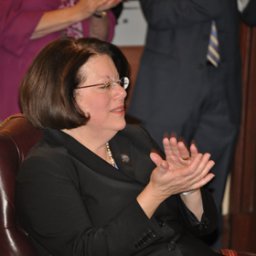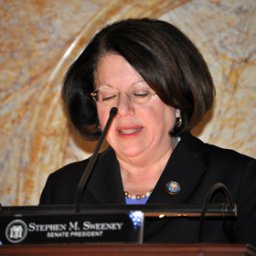‘Thomas P. Canzanella Twenty First Century First Responders Protection Act’ Provides Coverage for Emergency Workers Whose Symptoms and Illnesses May Appear Years After Incidents
TRENTON – A bill sponsored by Senator Linda R. Greenstein that would ensure New Jersey’s first responders receive medical care and compensation for conditions resulting from their actions in the line of duty, particularly medical conditions that may not manifest until long after the event, was approved today by the full Senate.
“Each day first responders from police and fire to EMTs and paramedics to nurses and hospital personnel go to work to protect and serve the people of New Jersey and in doing so, put their own lives on the line,” said Senator Greenstein, D-Middlesex and Mercer. “When a catastrophic event or terrorist attack happens on American soil, these emergency workers may be exposed to carcinogens, communicable diseases, radiation and related hazards to their health, along with witnessing severe death and suffering, the affects of which do long-term damage to the worker. It is our duty to honor these men and women for their service and sacrifice by providing them with the compensation and health care they have earned.”
The bill, S-1778, would create a rebuttable presumption for workers’ compensation coverage – shifting the burden of proof from the employee to the employer – for any death or disability, including post traumatic stress disorder, that arises from the physical or psychological impact of stress or injury experienced by the public safety worker during response to a terrorist attack, epidemic or other catastrophic emergency. If a first responder is exposed to pathogens or biological toxins, hazardous chemicals, cancer causing radiation or radioactive substances or witnesses death and suffering of a magnitude sufficient to cause significant psychological trauma during a catastrophic event, they would be able to receive workers’ compensation including wage replacement and medical benefits. The bill would apply to both paid and volunteer firefighters, first aid or rescue squad members, police, corrections officers, nurses, medical technicians and other medical personnel.
The September 11 attacks on the World Trade Center in New York caused thousands of tons of toxic debris to enter the air in the aftermath of the attacks, leaving emergency responders and individuals in the area susceptible to increased health risks. Research into these toxins’ effects on rescue workers has been well documented. A Memorial Sloan-Kettering Hospital doctor cited a 70 percent illness rate among first responders; a 2010 report of 14,000 rescue workers found that on average workers lost 10 percent of their lung function. Further, a 2012 study by the Journal of American Medical Association reported that the incidences of prostate cancer, thyroid cancers and multiple myeloma was elevated among 9-11 rescue workers; and a recent Journal of Environmental Health Perspectives study found a 15 percent overall increased risk of cancer in World Trade Center rescue and recovery workers.
“In the aftermath of September 11, it took emergency personnel far too long to get the benefits they earned due to their heroic actions at Ground Zero,” said Senator Greenstein. “And with recent events such as the West Texas fertilizer factory explosion that killed eleven emergency workers and the Boston Marathon bombing that had firefighters, paramedics and EMTs witnessing severe trauma, we have to make sure that those who respond to emergencies and suffer injury are provided appropriate care. First responders who are suffering shouldn’t have to prove that their ailments – from respiratory issues to cancer to post traumatic stress disorder – were caused by their service, rather we should be providing them with the health coverage and care they need to survive.”
Due to the extreme likelihood of repeated smoke and carcinogenic exposure, the bill would provide that any firefighter with five or more years of service would receive a rebuttal presumption for workers’ compensation if they suffer an injury, illness or death caused by cancer.
The legislation is named after the late Thomas P. Canzanella, a Hackensack firefighter who spent several weeks at Ground Zero after 9-11 and championed coverage of firefighter occupational diseases, including cancer.
The bill was approved by the Senate with a vote of 21-13. It now heads to the General Assembly for further review.



